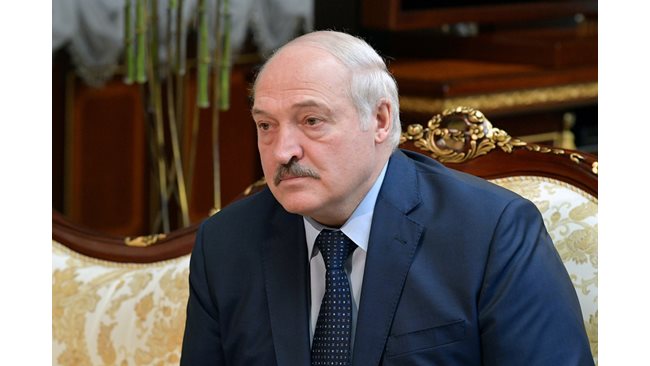–
–
Alexander Lukashenko
–
Alexander Lukashenko has earned the nickname of international terrorist, after hijacking a plane
From Europe’s last dictator to an international terrorist. This is how Western publications describe the 26-year presidency in Belarus of Alexander Lukashenko, a key ally of his Russian neighbor Vladimir Putin. Lukashenko, 66, received his new nickname after he ordered the forced removal of a passenger plane from Greece to Lithuania on Sunday to arrest opposition journalist Roman Protasevich on board.
Like most autocrats, the Belarusian president is convinced that he can break all rules and relations with impunity. For decades, Lukashenko has tortured, repressed, imprisoned and denounced all his opponents under the disturbed silence of the West and Putin’s support. His country of 9.5 million people, bordering Russia, Latvia, Lithuania, Ukraine and Poland, is considered by the Russian president to be a “buffer state” that protects it from NATO and EU progress.
The story of Lukashenko’s rise to power began in 1990, when he was in his late 30s and
promising young
military, just
won the election for
deputy seat
in the Belarusian Soviet Socialist Republic.
The young politician often boasted of close ties with the USSR, describing in detail his previous positions in the Soviet army and his membership in the communist youth wing. In 1993, Lukashenko was appointed head of the anti-corruption commission in the Belarusian parliament.
In 1994, he became the first President of the Republic of Belarus with 80.3% of the vote, pledging to pull the country out of the abyss. The elections were perceived as free and fair. At the time, the new leader was seen as a populist without a clear political agenda, and Belarusians voted against the old communist regime.
Lukashenko’s background is modest – raised by a single mother in a poor village in eastern Belarus. He is married to Galina Lukashenko, with whom he has two sons – Victor and Dmitry. In 2015, he said he had no plans to divorce Galina, even though they had not lived together for decades. He also has a third son, Nikolai, born in 2004, whose mother, Irina Abelskaya, was the president’s personal physician.
Soon after coming to power, Lukashenko earned the gentle nickname Batka, which means father to the Belarusians. And since then he strives to match this image. Years ago, for example, he visited a farm to check that the cows were being cared for properly. Dissatisfied with the mistreatment of animals, he fired several bureaucrats and the Minister of Agriculture. His official website describes him as a “people’s politician” and “president of the common people.” Therefore, it can be seen often yes
take out potatoes or
coated with cement
bricks under construction
In 1996, Lukashenko persuaded voters to approve constitutional amendments that expanded the presidency’s authority. When Western countries criticized the move, it temporarily ousted US and EU ambassadors. At the time, the dictator received significant financial and political support from Russia, a key ally in disputes with the West.
It is often said that Lukashenko has turned Belarus into a miniature version of the USSR, as the country’s relatively strong industrial and agricultural sectors are heavily subsidized and benefit from close ties with Russia.
His rule is marked by his deeply authoritarian style. To retain power, he relied on the country’s secret service, the KGB, which still bears the same name as its Soviet-era predecessor. Mr Lukashenko has used referendums to amend laws and even the constitution to expand his powers and lift restrictions on his mandate. Parliament has been deprived of power, the liberal opposition has been almost removed, and the media has been censored. Some opposition lawmakers have disappeared without a trace, political protests are being suppressed. The president once warned that anyone who joined an opposition protest would be treated as a terrorist, adding: “We will break their necks like a duck.”
Despite close relations with Moscow following Russia’s annexation of Crimea in 2014 and the ensuing war in eastern Ukraine, Belarus has taken a neutral position. It continued to host peace talks in Minsk and released several dissidents, prompting the EU to lift sanctions in 2016. Belarus resisted Russian pressure for a united state.
The beginning of the end of Lukashenko’s reign may have begun after the 2020 elections, when he first met serious opposition. Fearing he could be ousted, experts say the president falsified the election results, declaring that he had won 80% of the vote and starting a sixth term at the helm. The move sparked protests across the country. The dictator ordered the arrest of more than 35,000 Belarusians, with thousands facing violence and torture in custody. After the plane was hijacked on Sunday, detained opposition journalist Roman Protasevic pleaded guilty to inciting social unrest. The recording of the confessions was made under pressure and harassment, according to oppositionist Svetlana Tikhanovska and US President Joe Biden. His relatives suspect torture.
– .


